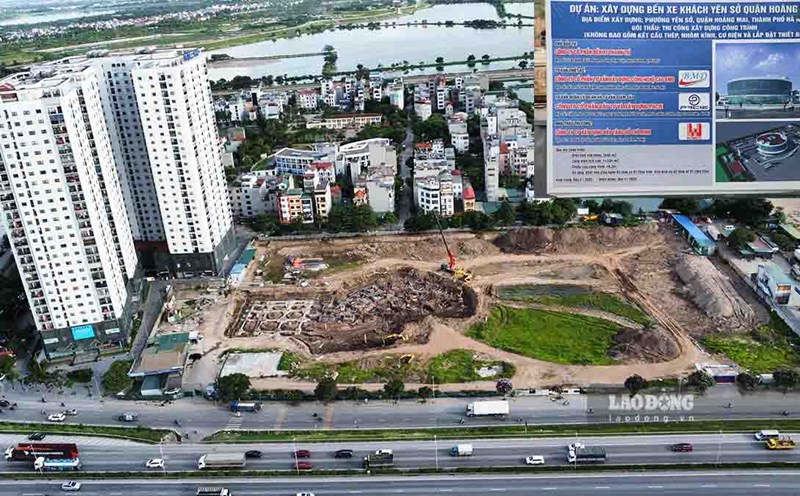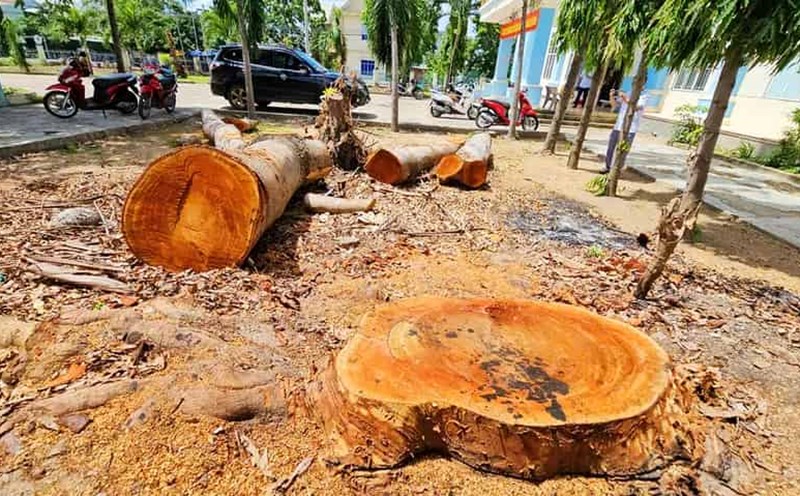In recent days, in many provinces in the northern mountainous region such as Bac Kan and Thai Nguyen, prolonged heavy rain has caused serious damage.
Not only did it cause landslides and traffic disruption, but it also caused hundreds of hectares of rice and vegetables to be buried and flooded, severely affecting people's livelihoods.
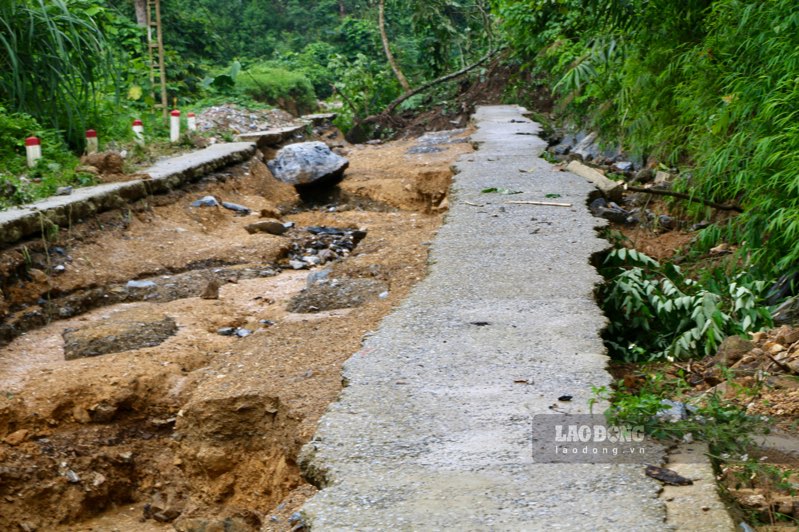
According to Lao Dong Newspaper's reporter at the end of June 2025, in Bach Thong district (Bac Kan), heavy rain continuously for many days caused rocks and soil from the positive slope to slide down onto the road.
Many inter-commune traffic routes in Sy Binh, Cam Giang, Tan Tu were temporarily cut off, and travel and trade were suspended.
Not only that, many fields in low-lying communes were submerged in water. The field surface is covered with mud, rice is poured, the roots are rotten, and the trunks are broken.
The remaining trees have also turned yellow and cannot recover. In many places, the water has just receded, leaving behind thick layers of mud, and uneven fields with dead leaves and rice roots.
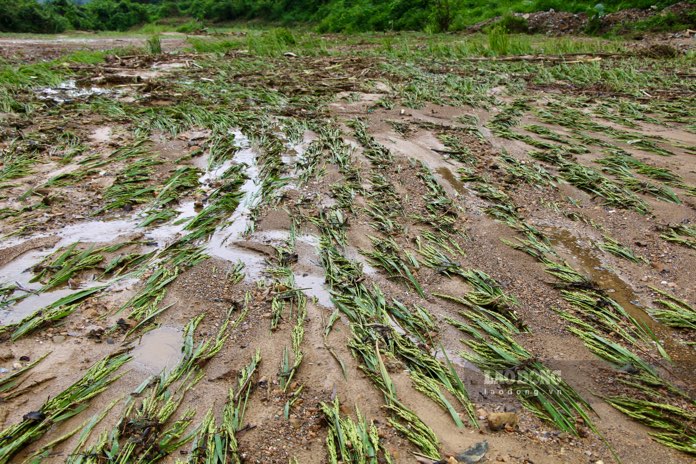
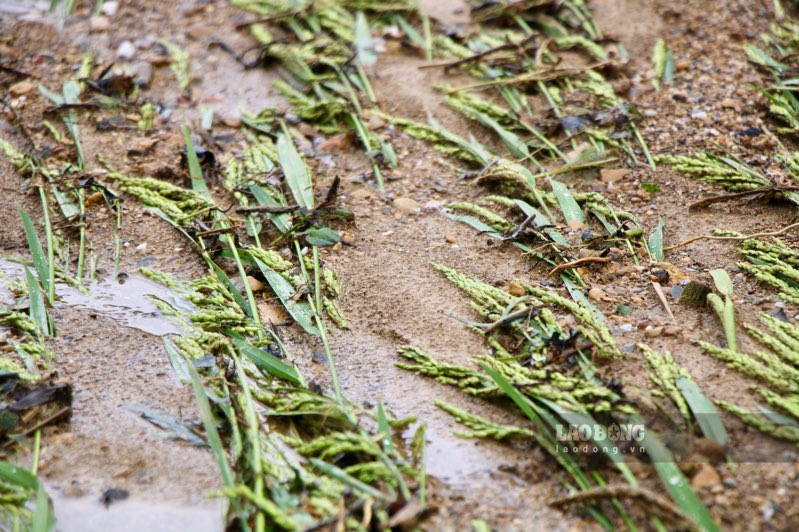
Ms. Nguyen Thi Hanh (Bach Thong) stood on the edge of the fields, which used to be green rice beds, now there is only young mud, fallen leaves and the roots of the plant after the flood.
Heavy rain lasting for two days, June 20 - 21, caused the water to rise rapidly, submerging all 5 sao of rice fields. The rice has not yet ripened, the roots are waterlogged, the trunks are broken, lying among the rotten soil.
"I have been attached to farming for many years to make a living, and the flood has come to my family and I have lost everything, I just hope the authorities have a support plan to help restore production," Ms. Hanh shared.
According to the Department of Agriculture and Environment of Bac Kan province, from the night of June 18 to 23, the whole province had 277 houses and a number of public works that were eroded, flooded or damaged.
More than 548 hectares of rice and crops were flooded and buried, many aquaculture areas were washed away and damaged. Many roads were buried by rocks and soil with a volume of nearly 7,800m3, and some places were temporarily cut off.
Similarly, in Thai Nguyen, many vegetable growing areas along rivers and low-lying areas were submerged in floodwaters.
The vegetable fields that were green just a few days ago are now completely flooded. The field surface was covered with mud, bamboo trays fell down, and crushed trees laying around, leaving behind a scene of devastation after the flood.
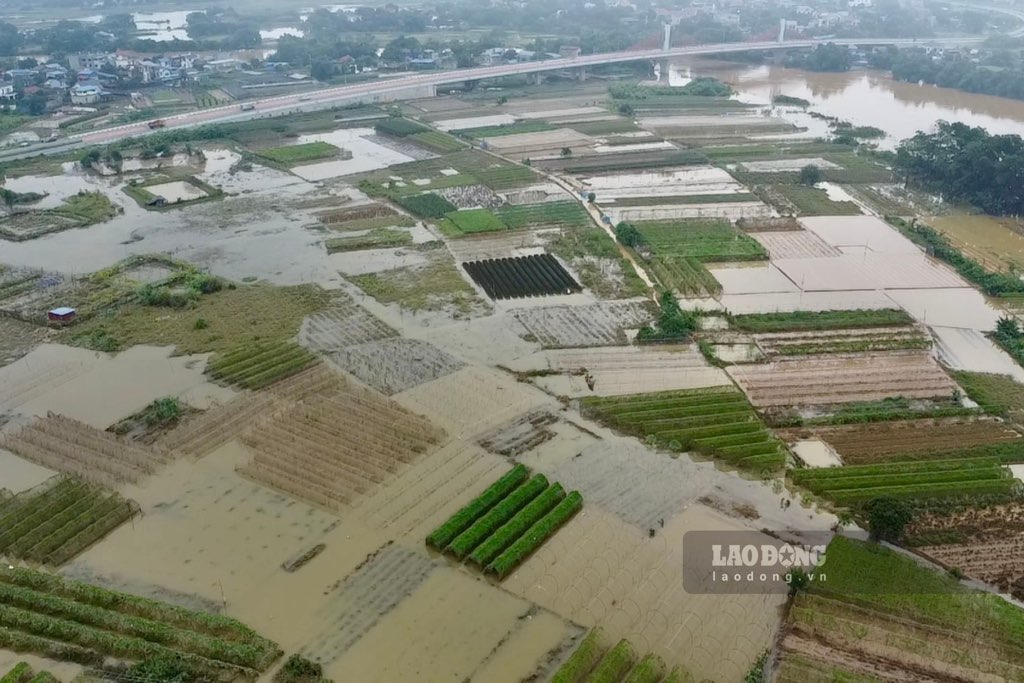
Ms. Nguyen Thi Hoan's family in Tuc Duyen ward (Thai Nguyen city) has 2,000m2 of squid growing, all of which are gone. She said that Typhoon Yagi in September 2024 once left her penniless. Less than a year, another flood almost exhausted her.
Taking up each remaining onion tree in the field, Ms. Hoan sadly shared: "Now I just hope the rain will be less, the fields will be drained, and then receive support from the locality, from seeds, fertilizers to instructions on land improvement.
If there is nothing to plant in the next crop, my family will have no more roads to stick to the fields.
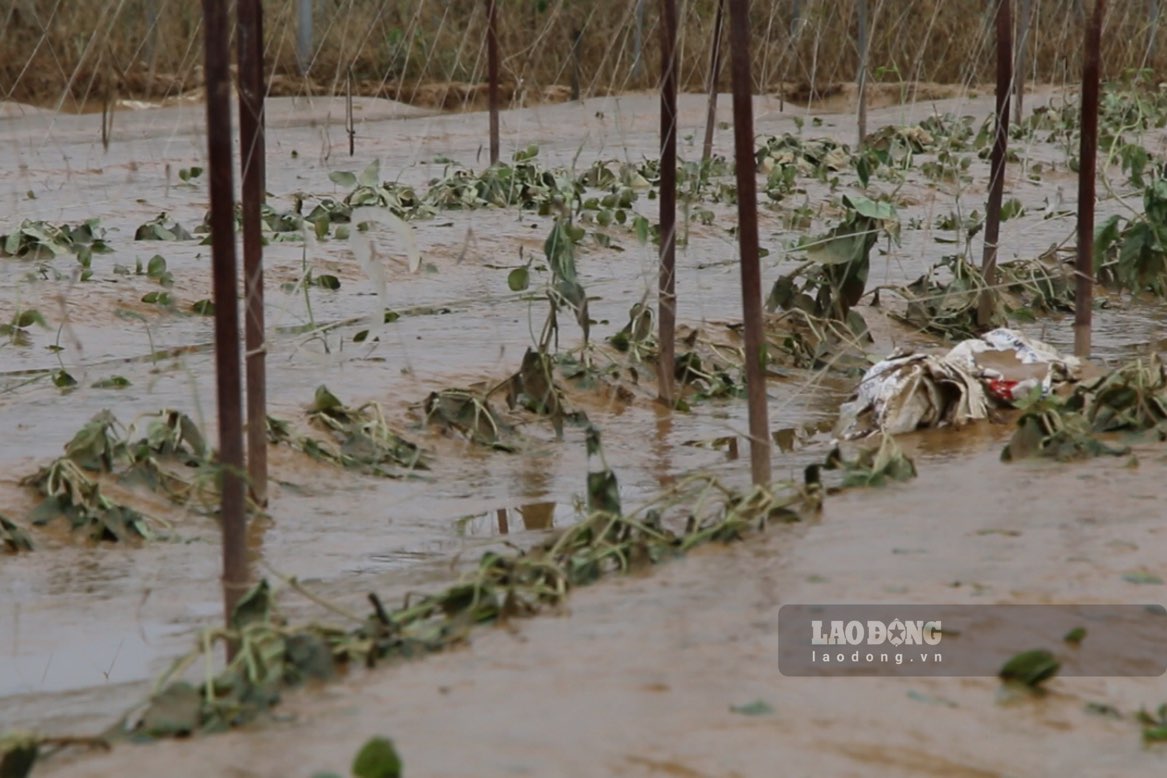
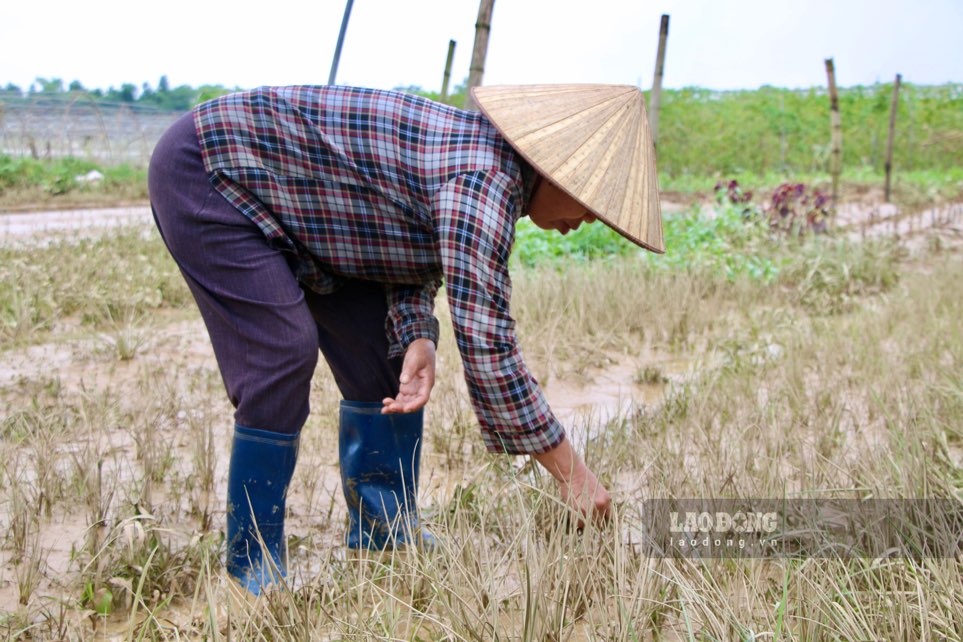
According to Vinasarcom, Thai Nguyen province, floods have forced the entire province to evacuate 179 households. More than 86 hectares of rice and crops were flooded; 23,39 livestock and poultry died and were swept away.
While the production recovery plan is being developed by the relevant agencies, people in many localities are still making efforts to clear fields and restore production to keep for livelihood.





